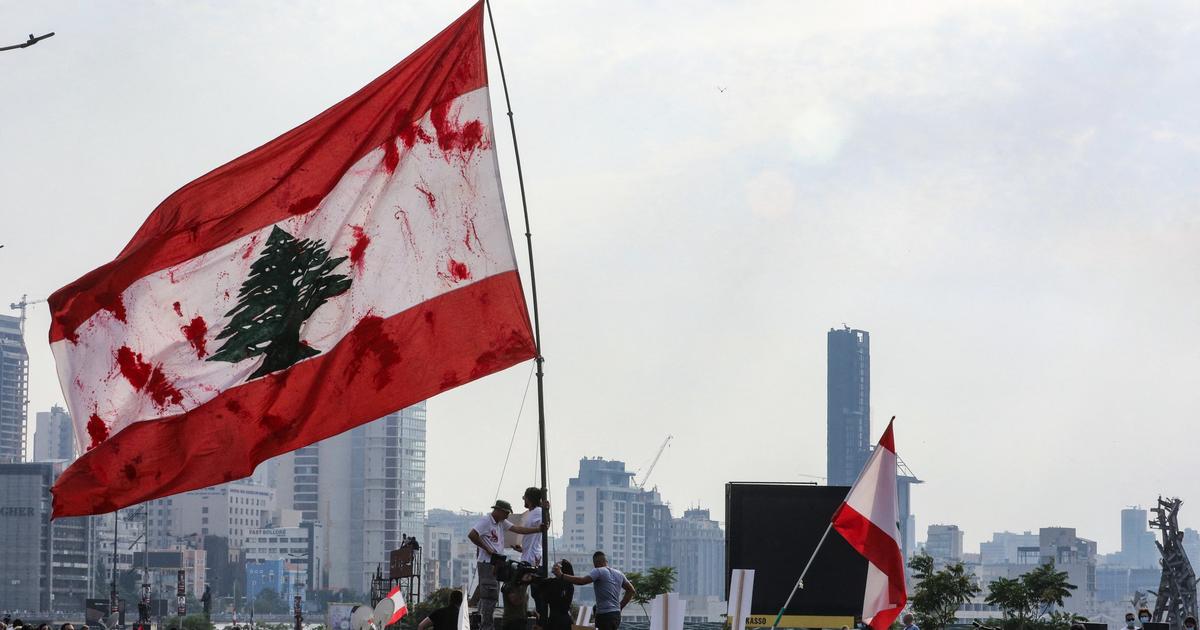Enlarge image
Truck blockade of the highway to Beirut in Sidon: Protest against diesel rationing
Photo: MAHMOUD ZAYYAT / AFP
If necessary, the EU states also want to impose sanctions on those responsible for the political crisis in Lebanon.
A legal framework for punitive measures should be in place by the end of the month, announced the EU foreign affairs representative Josep Borrell after a meeting of EU foreign ministers in Brussels.
This framework would allow the freezing of existing assets in the EU and entry bans.
French Foreign Minister Jean-Yves Le Drian said the new sanctions regime should act as leverage and accelerate the formation of a new government and necessary reforms.
more on the subject
State crisis: Lebanon's head of government sends a cry for help to the world
Rising prices, fights at the gas station: the Lebanese lira loses 90 percent of its value
Electricity crisis in Lebanon: The perfect short circuit By Christoph Reuter
Lebanon has been experiencing one of the worst political and economic crises in its history for months.
The current government announced its resignation shortly after the devastating explosion in the port of Beirut and is only executive in office.
Since then, important political blocs have blocked each other in forming a government.
Lebanon's political elite has long been exposed to massive allegations of corruption.
The situation is particularly serious because the small Mediterranean country has been in a serious economic and financial crisis for almost two years.
The local currency, the Lebanese lira, has lost more than 90 percent of its value.
More than 60 percent of the population now live in poverty.
Inflation is more than 100 percent, for food even more than 200 percent.
Because of a lack of supplies, long queues form in front of petrol stations and there is a lack of medicines in pharmacies.
People have to get by without electricity for hours every day.
Last week, Prime Minister Hassan Diab sent a call for help to the international community in view of the catastrophic supply situation.
Germany, other western states and the International Monetary Fund (IMF) only want to support the country financially once the government has decided on far-reaching reforms.
fdi / dpa











/cloudfront-eu-central-1.images.arcpublishing.com/prisa/KMEYMJKESBAZBE4MRBAM4TGHIQ.jpg)


